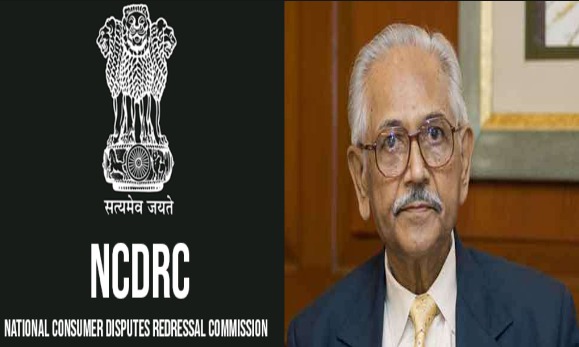
The National Consumer Disputes Redressal Commission (NCDRC) recently dismissed a medical negligence case filed by the wife and children of former Chief Justice of India (CJI) JS Verma.
The case alleged that medical negligence had resulted in the death of the former CJI.
The bench, comprising Dr. SM Kantikar (presiding member), Justice (retired) Ram Surat Ram Maurya (judicial member), and Dr. Inder Jit Singh (technical member), concluded that there was no evidence of medical negligence on the part of Bhardwaj Nursing and Maternity Home Private Limited, Fortis Escorts Institute, Medanta Hospital, or the doctors involved in CJI Verma’s treatment.
“In the instant case, the standard medical protocols being followed by the all opposite parties, it was neither failure of duty of care nor any deficiency from the Ops … The death of Justice J.S.Verma was not attributable to the act of OPs. We have deep sympathies with the death of Justice JS Verma, but it cannot be ground for liability. The Complaint fails, it is dismissed,” the NCDRC stated.
CJI Verma, aged 80, passed away in April 2013 due to multi-organ failure. This unfortunate event occurred several months after he led a three-member panel that submitted a report suggesting amendments to criminal law in response to the Nirbhaya gangrape case of 2012.
After retiring as CJI in 1998, he served as the Chairman of the National Human Rights Commission from 1999 to 2003.
Subsequent to CJI Verma’s demise, his wife and children leveled allegations of medical negligence against the hospitals and doctors who had provided treatment between November 2012 and 2013.
The wife and two children of CJI Verma, who are the complainants in the case, stated that the former judge had been diagnosed with coronary heart disease in 1998 but had managed it through a healthy lifestyle, regular medical check-ups, diet, and exercise.
The complainants alleged medical negligence on the part of the accused doctors and hospitals based on several incidents that occurred between 2012 and 2013. These incidents included:
- Prescribing tablet Dabigartan (Pradaxa) along with Clopidogrel and Amiodarone, and other medications, without taking into account CJI Verma’s abnormal liver function and impaired blood clotting, as indicated by his test results.
- Failure to conduct appropriate tests.
- Delay in performing an endoscopy at Medanta Hospital despite continuous bleeding.
- Multiple transfusions at Fortis Escorts leading to fluid overload in the lungs and resulting in acute breathing difficulties.
- Inadequate attempts to correct hypocalcemia (low blood calcium levels) and failure to intubate upon arrival at Medanta Hospital, among other issues. After a thorough analysis presented in its order, the NCDRC reached the conclusion that none of the accused individuals were guilty of medical negligence.
One significant finding was that the prescription of Dabigartan was deemed appropriate by the NCDRC. The order stated, “ It was in the interest of the patient to save him from the cerebral stroke … From the documented literature and the text books on Cardiology, Internal Medicines and Pharmacology, the drug Dabigartan is metabolized in Kidney, therefore, as far as there is no severe liver impairment, it can be given in full dose … Dabigartan is a very safe drug.”
The Commission also noted that Dabigartan had been administered in the lowest dose and that there was no interaction observed between this medication and the other prescribed medicines, namely Amiodarone and Clopidogrel.
Furthermore, the NCDRC highlighted that both the Delhi Medical Council (DMC) and the Medical Council of India (MCI) had concluded in 2014 that there was no negligence on the part of the doctors at any stage of the treatment.
NCDRC went on to hold that, “To bring successful claim the victim or victim’s family bringing the action must prove all the “four D’s” against the erring doctor/hospital. The 4 D’s of medical negligence stand for ‘Duty’, ‘Dereliction/Deviation’, ‘Direct (proximate) Cause’ and ‘Damages’. In the instant case the complainant’s failed to prove the dereliction of duty of care from the OPs and the same was not a proximate cause of death of Justice J.S. Verma.”
The NCDRC, drawing on Apex Court judgments, reaffirmed that a medical practitioner cannot be held liable solely due to unforeseen circumstances, unfortunate events, or errors in judgment when choosing one reasonable course of treatment over another. As long as the doctor provides care, skill, and diligence in attending to the patient, they cannot be held accountable.
Based on this understanding, the NCDRC dismissed the complaint filed in the case.




